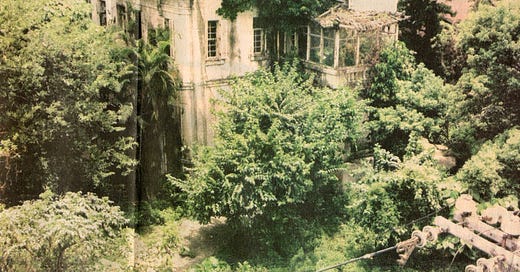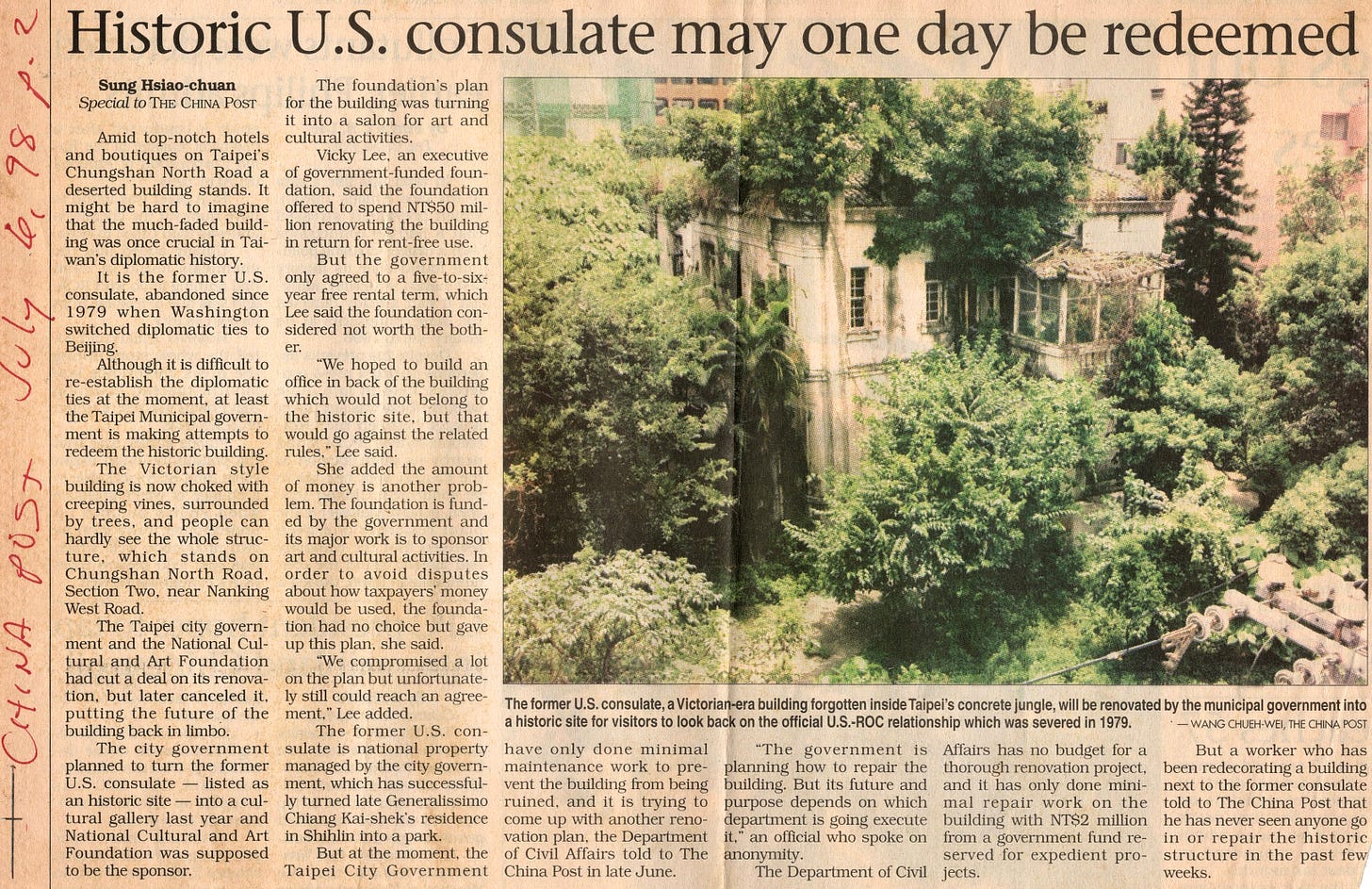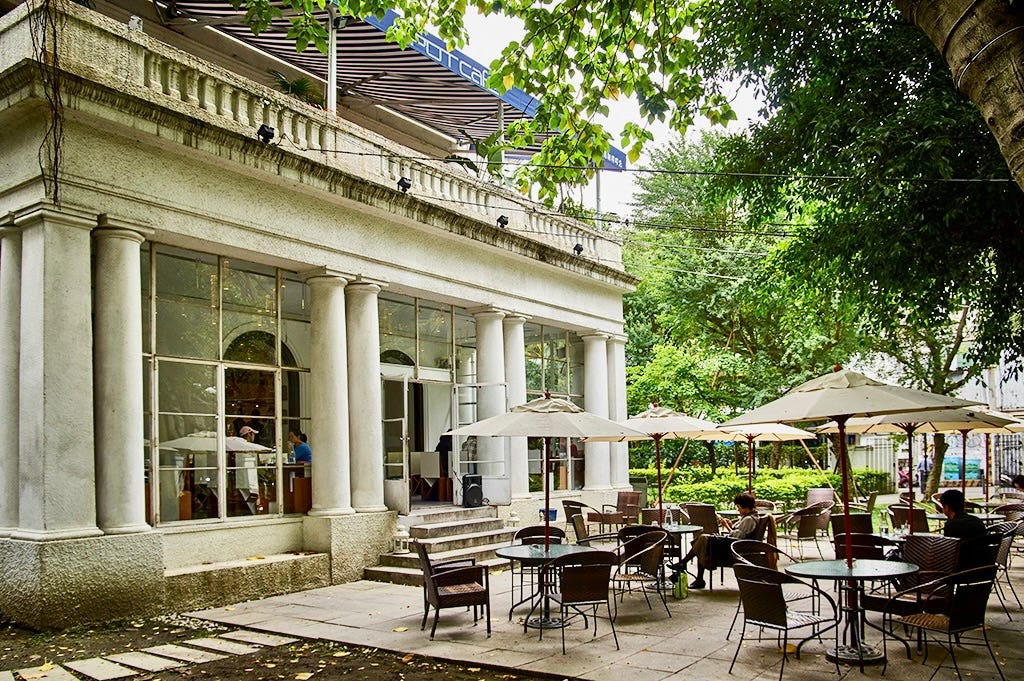China In Arms BOOKSTORE and GIFT SHOP!
Follow on Twitter
Enjoy China In Arms on the big screen!
Subscribe: $5 Month/$50 Annual (unable to secure a subscription contact the bank for permission for Stripe deposits). If you continue to have problems, please notify me immediately: chinainarms@substack.com
11 October 2023 (Wednesday)
America’s Haunted Past in Taiwan
U.S. Ambassador Home - From Decay to Decadence
By Wendell Minnick (Whiskey Mike) 顏文德
TAIPEI - With the closure of U.S. military facilities in Taiwan in 1979 and the switch in diplomatic relations by Washington from Taipei to Beijing, there was plenty of hand washing of responsibility.
If America is good at anything it is abandonment. Whether it was Saigon in 1975 or Afghanistan in 2021.
We are runaway dads looking for a new mamasan every chance we get.
The most obvious was the Victorian-style “Haunted House” on Zhongshan North Road that served as the former U.S. Ambassador’s home during the Cold War.
Five U.S. Ambassadors, Everett Drumright (1958 – 1962), Ian Kirk ( 1962 –1963), Jerauld Wright (1963 - 1965), Walter McConaughy (1966 – 1974), and Leonard Unger (1974 – 1978), all made their residence in this building.
After It was abandoned the Taiwanese did nothing with it. As tall grass, vines crept up the walls, and mangy dogs took over, it became a metaphor of U.S. foreign policy: a derelict of American foreign policy gone to hell.
In the 1990s, many of the expatriates I drank with in the Combat Zone on Shuangcheng Street would walk by in the wee hours, totally trashed, making our way home and we would wonder around the building hunting ghosts for fun.
The building’s paint and plaster was flaking off the ceiling and walls. The floor cracked as you walked across it from the decay.
It was metaphor upon metaphor upon metaphor of American foreign policy stacked upon Kissinger’s arrogance and Carter’s and Clinton’s China Dream.
No one did more damage in the Sino-U.S. relationship than the Clinton criminal syndicate: Year of the Rat: How Bill Clinton Compromised U.S. Security for Chinese Cash.
The iron gates to the premises had long since been ripped down.
It was an oddity in an ever growing real estate market to see rats playing in the front yard of a place that once hosted ambassadorial imperialistic pretentiousness.
As a friend once warned me, you can be a rooster one day and a feather duster the next.
Click to Enlarge:
ABOVE: SUNG Hsiao-chuan, “Historic US Consulate May One Day Be Redeemed,” China Post (now defunct), 6 July 1998, p. 2.
Just about a block north was the CIA’s Air Asia (formerly Civil Air Transport Hq). See Chris Pocock’s The Black Bats: CIA Spy Flights Over China From Taiwan, 1951-1969 (2010) and William Leary, Perilous Missions: Civil Air Transport and CIA Covert Operations in Asia (2002).
In November 2002, the old house was re-opened as a post-modern chic boutique-style venue dubbed The Spot - The Taipei Film House, a cultural mecca for the arts, theater and coffee drinkers.
In other words, it was an over priced artsy-fartsy annoyance showing foreign films about existential crisis in a post-modern world without popcorn.
Frankly, I miss the mangy dogs chasing rats around the front yard.





